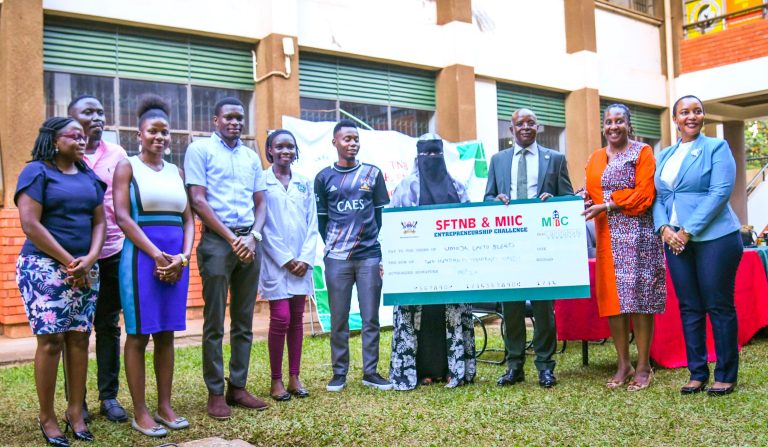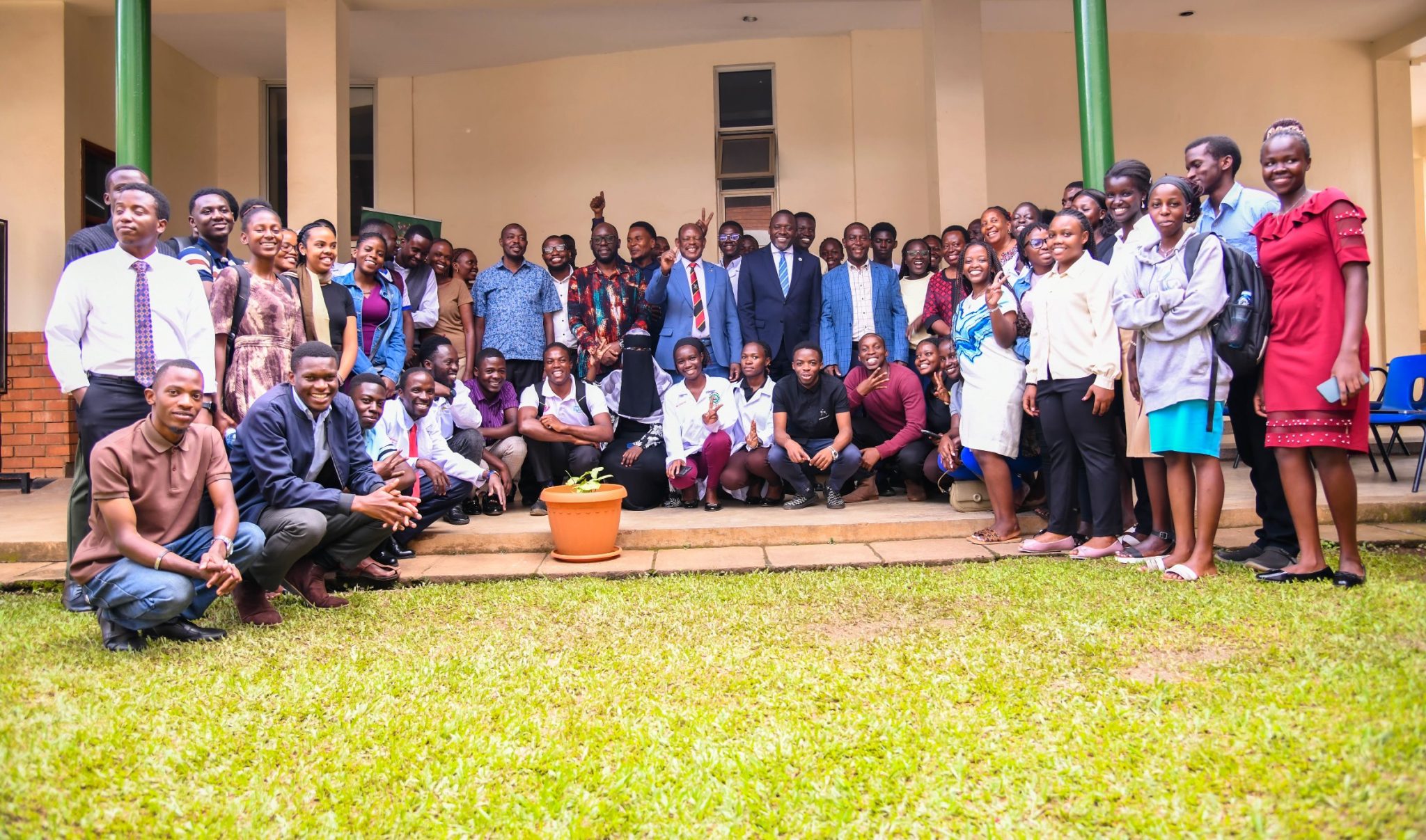
The School of Food Technology, Nutrition and Bio-Engineering (SFTNB), in partnership with the Makerere Innovation and Incubation Center (MIIC), held the third edition of its Entrepreneurship Exhibition on 12th November 2025, bringing together student innovators to showcase a semester’s worth of creativity, research, and product development. The exhibition is a key milestone under the SFTNB Entrepreneurship Program – Cohort 3, a structured model that guides students through the full innovation journey — from idea generation and business training to prototyping, testing, and market access. Supported by MIIC with a UGX 7 million innovation fund, the program has empowered more than 60 students across 15 innovation groups to develop practical, sustainable, and market-ready solutions in food technology, nutrition, and engineering. This year’s exhibition provided a platform for students to present their prototypes, share their business concepts, and engage with university leaders, industry partners, and potential investors, further strengthening Makerere University’s commitment to nurturing a new generation of entrepreneurial change-makers.
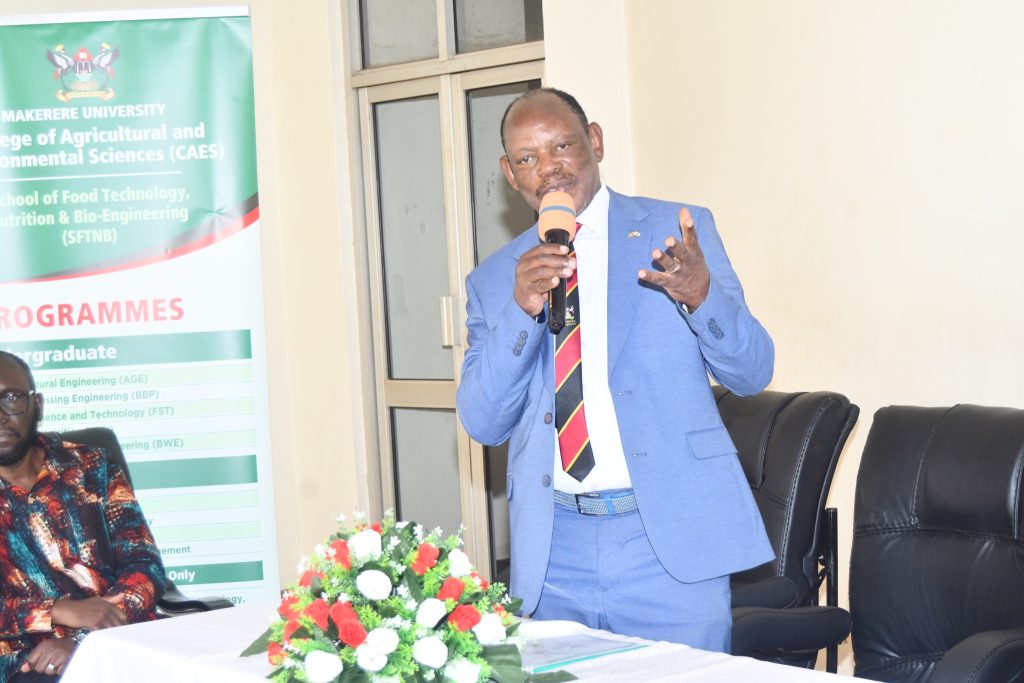
The Vice Chancellor Prof. Barnabas Nawangwe commended the School of Food Technology, Nutrition and Bioengineering for nurturing innovations that reflect both creativity and commercial potential. He observed that many of the student products exhibited could be patented, scaled up, and exported, provided their shelf life, packaging, and branding are further improved. Emphasizing that innovation must go beyond classroom projects, Prof. Nawangwe urged students to view their work as viable enterprises capable of transforming communities and creating employment. He also pledged the university’s support in helping innovators register companies and access product certification, even suggesting that Makerere could subsidize related costs. He further called for closer collaboration with economists and marketers to assess product feasibility, adding that the university’s innovation ecosystem should include a dedicated marketing unit. He concluded by reminding students that their ideas hold the power to reshape Uganda’s economy and uplift livelihoods. “Don’t think what you’re doing is small. You’re contributing to transforming a whole society,” he said, adding that “You will not need to go out looking for jobs; you will be creating them.”
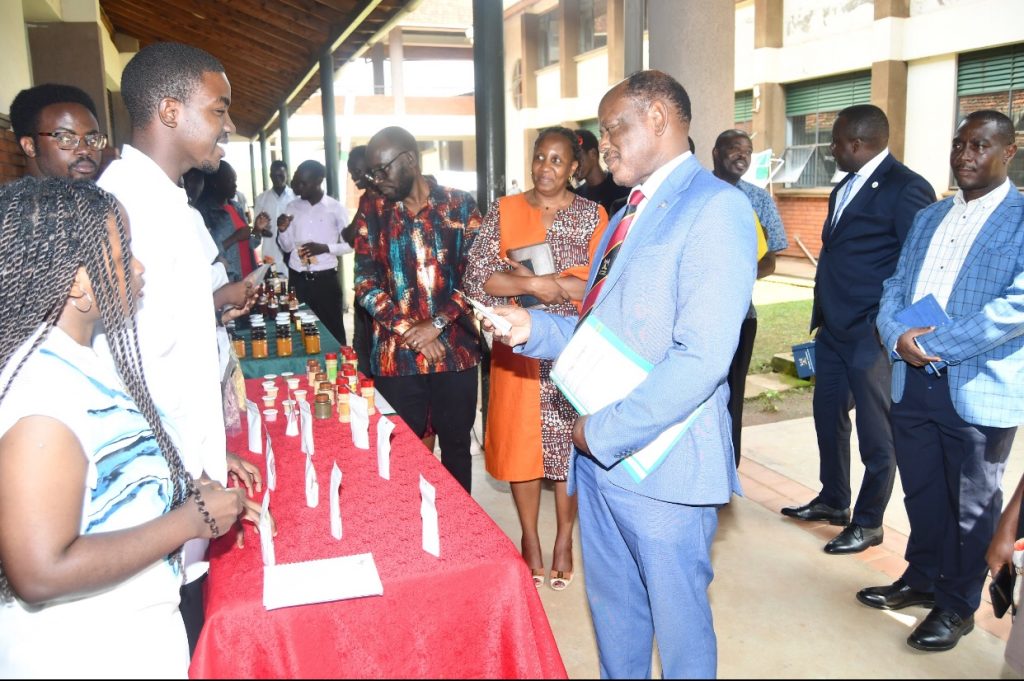
The Dean of the School of Food Technology, Nutrition and Bioengineering, Prof. Julia Kigozi, expressed heartfelt gratitude to the Vice Chancellor and the university management for their continued support toward the school’s initiatives. She noted that the exhibition was a reflection of the hard work and creativity of students who are being equipped not only with technical skills but also with the mindset to innovate and contribute meaningfully to industry. Prof. Kigozi highlighted that the school’s projects have significant potential for commercialization and industry collaboration, made possible through ongoing support and funding. She reaffirmed the school’s commitment to nurturing practical, industry-relevant training that empowers students to apply their knowledge beyond the classroom. “When you see the students out here working hard, they are very encouraged,” she said, adding that “what they are doing demonstrates a lot of potential for products to go out for commercialization and for creating training platforms that can support industry in various ways.”

Mr. Gilbert Buregyeya, Programs Lead of the Makerere Innovation and Incubation Centre (MIIC), commended the School of Food Technology, Nutrition and Bioengineering for its commitment to innovation and practical learning. He noted that the partnership between MIIC and the school has been instrumental in redesigning the curriculum to emphasize commercialization and market readiness of student projects. Highlighting ongoing efforts to make the certification process more accessible for young inventors, he revealed discussions with the Uganda National Bureau of Standards (UNBS) aimed at developing flexible, lower-cost certification pathways that allow students to test their products in the market.
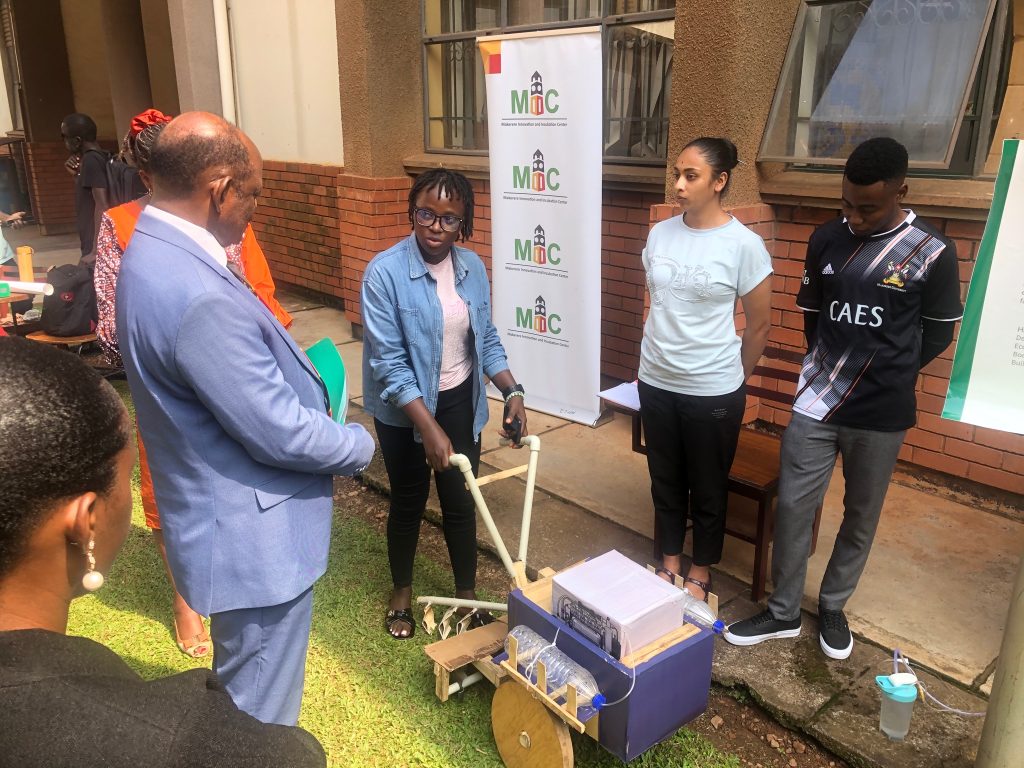
Mr. Buregyeya further emphasized the importance of cross-college collaboration within the university, pointing to successful engagements with other colleges such as COFA and Queensland College. He expressed optimism that Makerere’s innovation ecosystem will soon produce groundbreaking, market-ready products capable of competing globally. “We are happy that the journey is underway this semester,” he said, adding that “our goal is to support young innovators to move from small markets to compete with the bigger ones outside, and to make certification and commercialization more attainable for students.”

Representing the Deputy Vice Chancellor for Academic Affairs, the Principal of the College of Business and Management Sciences (CoBAMS), Prof. Edward Bbaale commended the School of Food Technology, Nutrition and Bioengineering for integrating innovation and entrepreneurship into academic training. He described the student exhibition as a celebration of “innovation, action, purpose and science that transforms,” noting that such initiatives align with national goals of value addition, sustainability, and community transformation. Prof. Bbaale emphasized that the showcased projects — spanning food, nutrition, and engineering — demonstrate how students are emerging as entrepreneurial learners and change agents addressing real-world challenges.
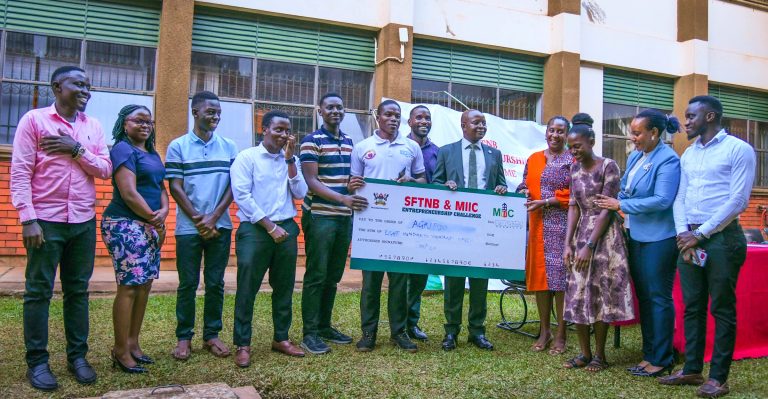
He acknowledged the Makerere Innovation and Incubation Centre (MIIC) for supporting student-led research and urged innovators to remain focused, ethical, and community-oriented in their ventures. Commending the mentors and staff for their guidance, he reaffirmed the university’s commitment to building a research-intensive, innovation-driven ecosystem that supports ideas from concept to commercialization. “Never involve yourself in a business when you are not serving a community problem,” he advised, adding that “you have shown resilience, creativity and passion — proving that innovation knows no bounds. The future belongs to those who are ready to build it.”
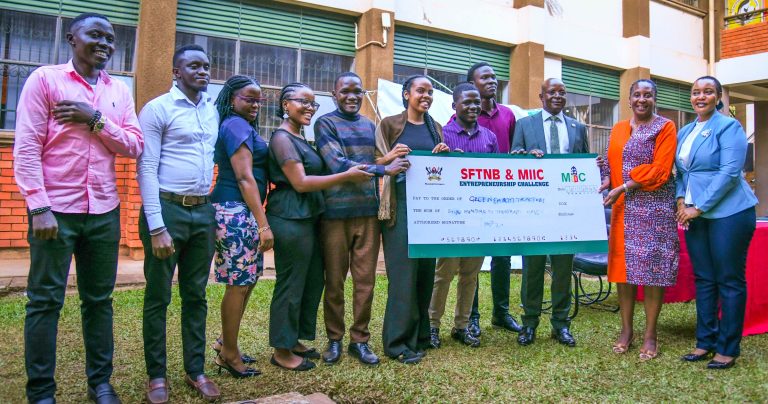
The exhibition concluded with the recognition of the top-performing student innovation groups, celebrating their creativity, technical skill, and market potential. Umoja Lacto Blend emerged as the Second Runner-Up, impressing judges with its unique product concept and strong value-addition focus. The First Runner-Up, Green Farm Tractor, showcased an innovative engineering solution designed to improve agricultural efficiency and accessibility for smallholder farmers. Taking the top spot was Agri Farm, whose outstanding innovation, clear business model, and readiness for market positioned them as the overall winners of the 2025 cohort. Their achievements reflected the high caliber of talent within SFTNB and the transformative potential of student-led entrepreneurship.
